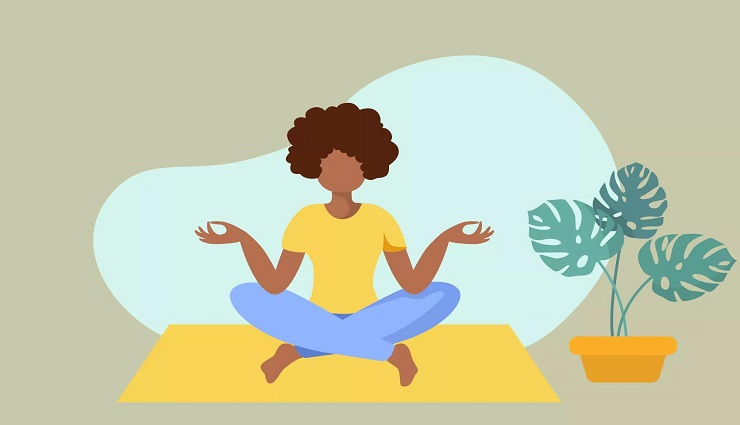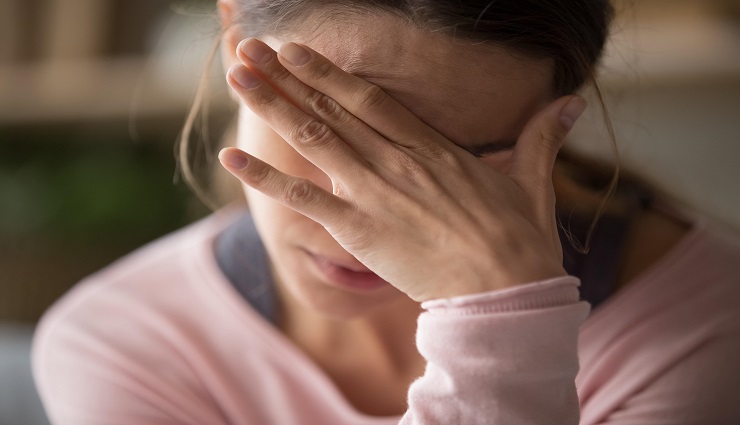Stress is one of the most critical factors that disrupt sleep, and insomnia caused by stress and anxiety is a common problem. Do you want to know how to control pressure and sleep better? This article has provided solutions to help you overcome fear and sleep better. Stay with us.
1. Identify stress triggers
Stress has many triggers. Sometimes, our focus is caused by our daily needs and concerns, and sometimes, it is caused by issues related to work, family, or necessary and sudden life changes. Recognizing these triggers is essential to achieving peace of mind. When you know the stressors well, you can find solutions to them. For example, if a lot of work pressure causes stress, strategies such as getting help from others or delegating some tasks to others are good ideas to eliminate this stress.
Write down your feelings, worries, and stress triggers. According to research, writing down thoughts and fears calms people down.
2. Make your sleeping environment relaxing and suitable for sleep
One of the most critical factors influencing sleep quality is the sleeping environment. A good sleeping environment means:
- have a comfortable mattress and pillow;
- The bedroom temperature should not be too high or too low;
- No annoying lights or noises.
A calm sleeping environment is also critical. If your sleep is disturbed by things like your spouse snoring or your pet’s noise, you need to think of a solution and make some changes. These minor distractions can disrupt your sleep even if they don’t bother you. Use earplugs if you have a sound problem or annoying noises.
3. Limit processed foods, caffeine, and alcohol
Have you ever noticed that you tend to eat more junk food when stressed? Processed foods, caffeine, and alcohol are responsible for most of the insomnia. Processed foods usually have a lot of fat and sugar, and fat and sugar take away a person’s sleep. It is interesting to know that eating these foods and insomnia have a two-way relationship; just as eating them causes poor sleep, poor sleep also leads a person to eat them.
Excessive consumption of caffeine and alcohol may also keep you awake longer and deprive you of the deep and comfortable sleep you want.
4. Observe the time interval between sleeping and eating
A healthy and balanced diet relieves stress and brings you deep and comfortable sleep. Eating foods rich in protein, carbohydrates, and healthy fats (such as omega-3 ) leads to better and deeper sleep.
Another thing to remember about food and drink and sleep quality is to adjust the amount and timing of your meals. Eating heavy food close to bedtime or late at night makes your stomach rich and robs you of a good night’s sleep.
5. Increase your physical activity
According to research, physical activity regulates the hormone cortisol. You don’t need to do heavy physical activities to sleep more comfortably and control daily stress; It is enough to exercise for half an hour several times a week. Walking, cycling, and aerobic sports are light and beneficial, regulating the cortisol hormone and helping sleep deeper and better.
6. Minimize the use of electronic devices early in the evening

Watching movies or playing games on cell phones or other electronic devices are tempting activities to fill idle time, but did you know that the light emitted from the screens of these electronic devices is what is delaying your sleep? The blue light emitted from the screens of electronic devices makes the body more alert. To avoid the effects of blue light, do not use mobile phones or other electronic devices 1 hour before going to bed.
7. Have a sleep schedule and night routine
A sleep schedule is helpful, especially when you are not stressed out. Choose a bedtime and wake-up time that you can stick to every day. Set this time so that you get enough sleep every night.
The night routine also signals the body that it is time to sleep. Relaxing activities like bathing or relaxation techniques right before bed can help you sleep better.
8. If you can’t sleep, do something non-stimulating
It must have happened to you that you keep tossing and turning, not falling asleep, or sleeping for a few hours and then jumping up and not falling asleep. In this case, it is better to use relaxing methods to fall asleep, such as:
- meditation ;
- Deep breathing;
- doing yoga movements ;
- biofeedback (learning to master body functions such as heart rate);
- Progressive muscle relaxation.
If it’s been 20 minutes since you went to bed and you don’t fall asleep, get up and do something non-stimulating in another room and return to bed when you feel drowsy again.
When should we see a doctor?
If you have a problem sleeping at night, have tried the mentioned solutions, and still cannot sleep enough, consult a specialist. According to experts, if insomnia lasts more than three months, it means there is some crucial clinical problem. Visiting a sleep disorder specialist or a cognitive behavioral therapist is a valuable step that will probably lead to identifying the root of your insomnia.
final word
Stress is one of the underlying factors of insomnia. Fortunately, you can control pressure and sleep better by using strategies such as preparing a comfortable and calm sleeping environment, a night routine, and relaxation techniques.
Do you get sleepless when you are stressed? What do you do to sleep better and earlier in this situation? Please share your valuable comments and experiences with us and our dear users.



